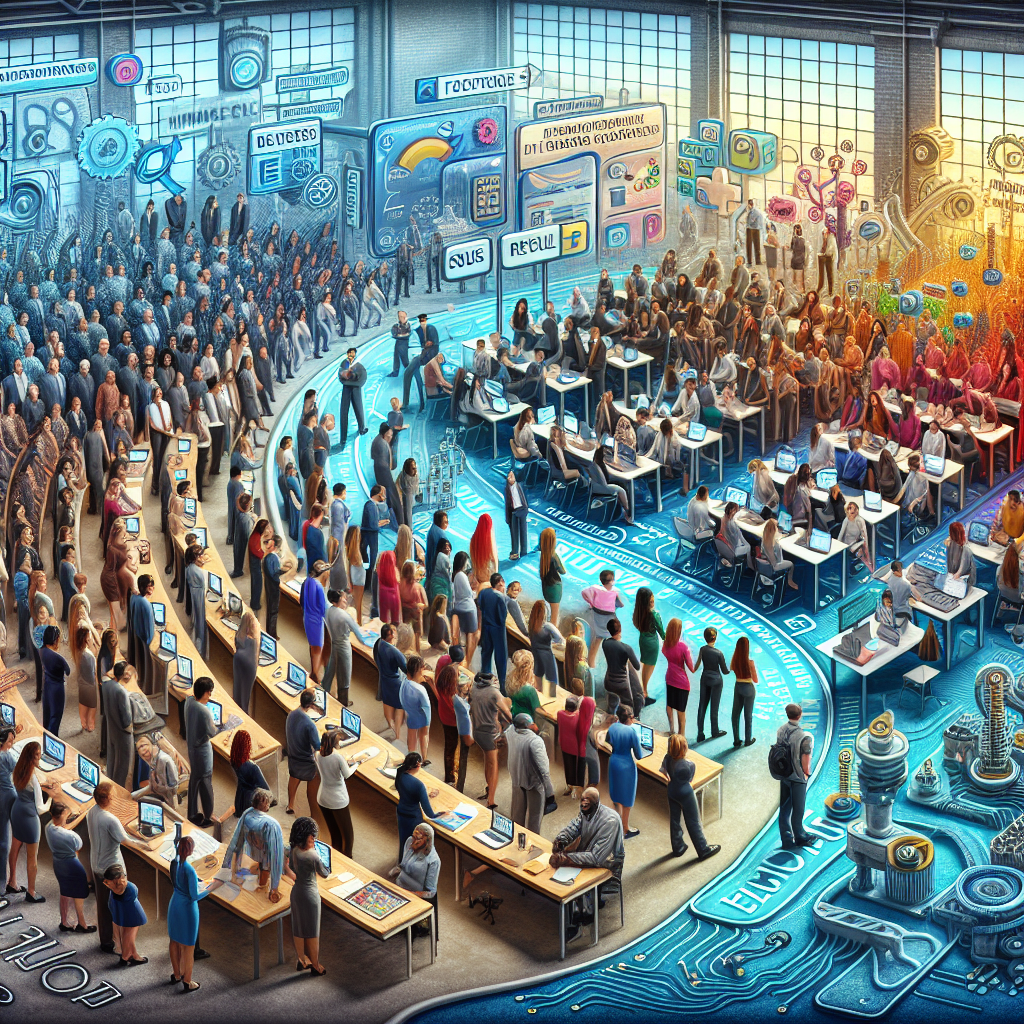
Embracing Flexibility: The Key to Future Workforce Development

The Future of Workforce Development: Flexibility is a Necessity
Picture this: you’re sitting in a cosy café, sharing a warm cup of tea with a friend. Somewhere between the sips and laughter, the conversation drifts to the future of work and education. What if I told you that flexibility isn’t just a fancy addition to workforce development? It’s a necessity. Yes, you heard me right! In this ever-evolving job market, we simply can’t afford to cling onto the outdated structures of the past.
Why Flexibility Matters
The UK government is revamping short courses through the growth and skills levy, and it’s a pivotal moment for us all. This change isn’t just bureaucratic fluff; it’s an opportunity to truly align education with the needs of modern employers. At City Skills, we believe that three essential pillars must guide this conversation: relevance, accessibility, and support.
As industries transform, so must our approach to skills training. Outdated courses with irrelevant content won’t just fail to excite learners; they’ll become obsolete faster than yesterday’s news. The key to staying current is ensuring courses align with actual employer demands. If we want to equip individuals with the necessary skills, we must first identify what those skills actually are.
Making Courses Relevant
First and foremost, relevance is crucial. What does this mean in practical terms? It means creating courses that provide real, applicable skills that employers are actively seeking. The days of sweeping academic theories without practical application are gone. Instead, we need to focus on real-world solutions.
From technology to renewable energy, industries are crying out for qualified individuals who are ready to hit the ground running. Data skills, digital literacy, and even soft skills like communication and teamwork are becoming non-negotiable. We should strive to design courses that not only teach these skills but also engage learners actively.
Accessibility for All
Next, accessibility is a topic close to my heart. Everyone deserves a fair shot at enhancing their skills, irrespective of their background or current circumstances. We need to break down barriers preventing individuals from accessing quality education and training. Whether it’s financial constraints, geographical limitations, or rigid scheduling, there should be solutions available.
Flexible learning options must become the norm. Online courses, evening classes, and hybrid models can allow individuals to learn at their own pace without disrupting their lives. This isn’t just about convenience; it’s about creating an inclusive environment where everyone can thrive.
Support Systems Matter
Finally, let’s not forget the importance of support. Investing in mentorship and support mechanisms is crucial to help learners navigate their educational journeys. It’s not just about signing up for a course; it’s about the entire experience. A vibrant support system can make all the difference in keeping learners motivated and engaged.
Imagine having a mentor who can provide guidance, share insights, and offer encouragement when things get tough. This kind of support can radically alter the trajectory of a learner’s career. At City Skills, we embrace this philosophy wholeheartedly and encourage others to do the same.
Looking Ahead
As we look to the future, the landscape of workforce development is changing. Flexibility, relevance, accessibility, and support are not just buzzwords; they are the foundation on which we can build a robust workforce ready for the challenges and opportunities ahead. If we want our workforce to truly flourish, we simply cannot overlook these elements.
So, here’s my question for you: how do you think we can better shape skills training to meet the demands of tomorrow? I’d love to hear your thoughts.
Let’s keep this conversation going and create a future where everyone has the opportunity to succeed in their careers!
#SkillsDevelopment #WorkforceTraining #CitySkills




